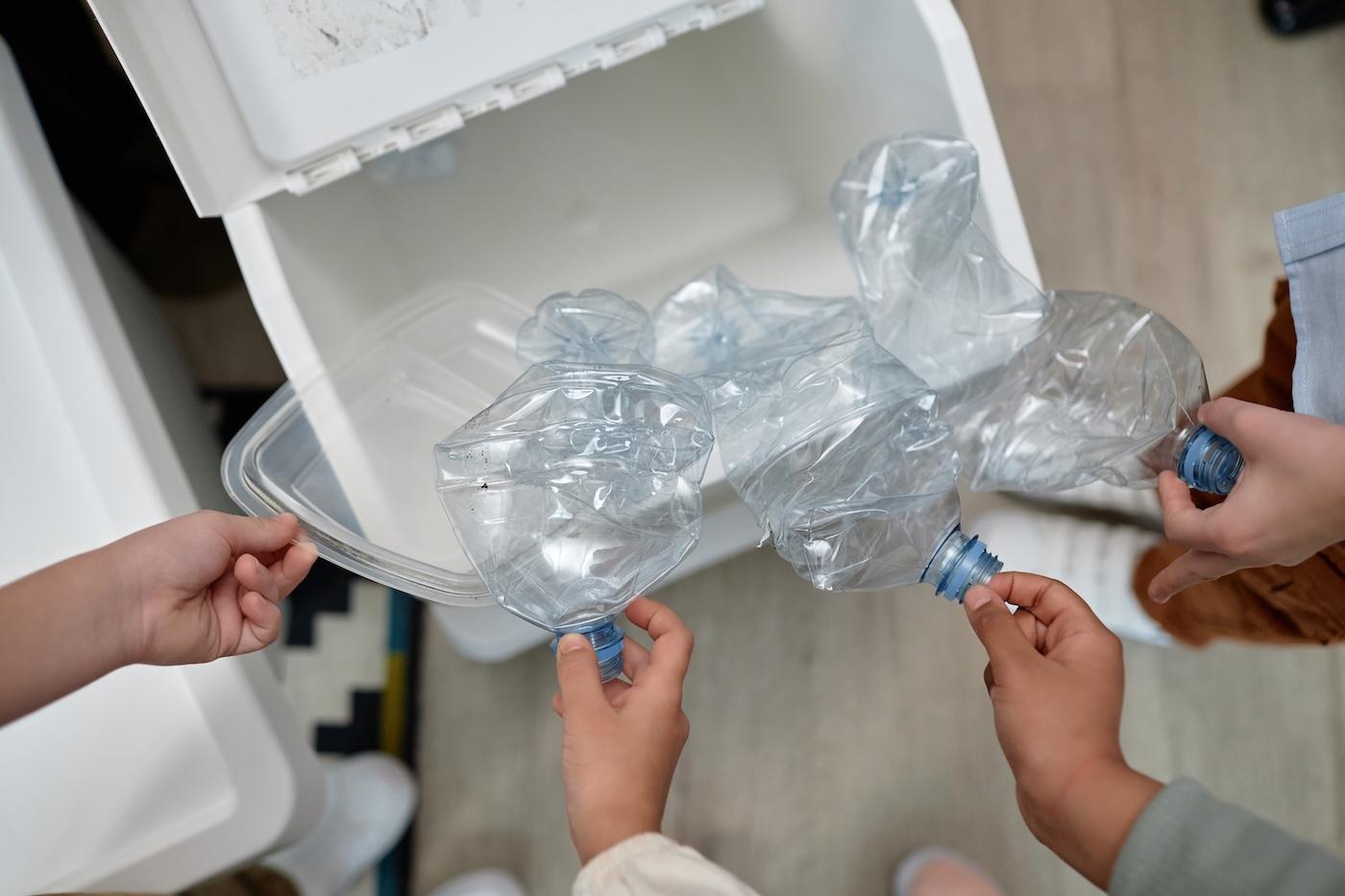PARENTS
Plenty of Support and a Realistic Approach Were Key to Breastfeeding Twins for Karen Navarre Wicki
The PR pro had an open mind when it came to feeding her daughters.

Written by
Happiest Baby Staff

All babies bring surprises…and it’s safe to say that’s twice as true with twins! This is something Karen Navarre Wicki—PR pro and mom to 21-month-old twins Maeve and Eliza—has experienced firsthand.
“You can prepare as much as possible, but you haven't met your coconspirator, so you can't consider their preferences,” she reflects. “It's like planning a vacation for yourself and another person without getting their input. They might show up, hate everything you planned, and make you completely redo the itinerary.”
Knowing she was expecting twins, Karen decided to take a realistic approach to breastfeeding—one that leaned on support, was flexible in the face of challenges, and attempted to take some of the pressure off. The result? So many valuable insights for other newborn parents! Keep reading to hear how this grounded perspective shaped her journey.
How did you come to the decision that you would nurse your babies?
My partner and I prioritized breastfeeding from the start, but I tried not to put pressure on myself. With twins, you give birth earlier, which increases your likelihood of medically complex infants. So, it's best to start with manageable goals.
My girls were born healthy at 35 weeks but needed three weeks in the NICU to "finish cooking," as I like to say. They were some of the biggest newborns in the NICU, and I never felt luckier. But I also felt really helpless. Providing milk for them ended up being a way to bond and connect.
I chose to exclusively pump in the NICU so that they could focus on growing and we could more easily track their feeds. Within a few weeks of being home, we transitioned to exclusively nursing from the breast, before moving back to bottles and incorporating formula around five months.
Did having twins deter you at all?
It forced my family to take a realistic approach. I didn't envision the perfect initial latch or quiet intimate moments with my baby. I didn't give myself a number. And I knew I'd need help. My goal was simply to do it if I could.
You know those pictures of a woman tandem feeding infants? It's cool, right? Well, what you’re not seeing off-screen is the supportive partner helping to get the newborns into position and stay in position. And then, chances are they don't start and finish at the same time, so that requires more help!
Before becoming a mom, what did you learn about the breastfeeding experience of other Black women, including the women in your family?
I'm deeply conscious of the traumatic and complex history associated with Black women and breastfeeding in this country. I'm bi-racial—my mother is Black and my father is white—so I have the added perspective of seeing how both sides of my family navigate breastfeeding. And, nursing is the norm across the board.
The most significant difference between the two sides of my family is around intergenerational support. We lived with my mother's mother for the first two years of my life, and my mother has stayed with us for nearly the past two years. On my mother’s side of the family, grandmothers and great-grandmothers take care of the little ones. My dad's side of the family is also loving and supportive—we're incredibly close—but there isn't the same expectation of the older generations.
It's really hard to have people in your space during the raw, messy period where you're healing, learning to mother, establishing breastfeeding, re-finding yourself, and reconnecting with your partner. Being able to experience all of that with my mother has been profound. To hear her stories, our family's stories, compare experiences, and look at old experiences in a new light is something I will always treasure.
![[object Object]](https://cdn.sanity.io/images/301lhh0a/production/7deec480f6655eef67e2a73b6c874745402c0072-1400x933.jpg?w=3840&auto=format&q=75&fit=max)
How would you describe your breastfeeding journey? Any surprises?
I think there are surprises no matter how many children you’ve breastfed. You can prepare as much as possible, but you haven't met your coconspirator, so you can't consider their preferences. It's like planning a vacation for yourself and another person without getting their input. They might show up, hate everything you planned, and make you completely redo the itinerary.
Can you tell us about the end of your breastfeeding journey?
I exclusively breastfed my twins for about five months. My family's decision to transition to formula resulted from a few things.
Balancing work and breastfeeding was just one too many things for me. Even though I work from home—so, theoretically, pumping or even breastfeeding throughout the day should have been simple—I struggled. My milk supply dropped, and pumping actually meant less time spent with my babies. I'd have a break from work, and rather than being able to hold one of my babies, I was hooked up to a breast pump.
Additionally, my girls had severe reflux that required medication—and for me and my partner to sit up with each baby for 20 to 30 minutes after I finished a feed. Around that time, their reflux started to be better managed and they became hungrier, which made it harder for me to supply enough milk.
Simultaneously, we were trying to wean them off night feeds, which we found easier with bottle feedings. The switch to formula ended up being best for everyone at that time.
What did you love about breastfeeding?
The physical act creates a pause where you can simply be in the moment with your baby. I believe this is true for all new mothers, but with twins especially, you're running a complex operation that involves constant planning and preparation. Breastfeeding was one of the few moments I could be at peace with each baby individually, or sometimes both, if I tandem fed.
What was your biggest breastfeeding challenge?
I wish I'd understood better—it doesn't have to be all or nothing. Most of the initial guidance comes when you're first home with a newborn. Returning to work is another big transition, and pumping while working isn't a natural act. Having better information during that time would have been valuable and potentially empowered me to breastfeed longer while supplementing with formula. One example of materials aimed at working moms—that I wish I’d known about!—is the breastfeeding guide from Work & Mother.
What kind of support did you have during your breastfeeding journey?
Plenty. Two SNOOs, of course! Also, my mother moved in to help, my husband took four months of parental leave and has a background in healthcare, we're financially secure, and even the way that I present and my ability to navigate white spaces helped to ease the way.
![[object Object]](https://cdn.sanity.io/images/301lhh0a/production/821a64c965e46a3c5895b5756404bfd0a7d77edc-1400x933.jpg?w=3840&auto=format&q=75&fit=max)
If you used a lactation consultant, what made you decide to consult a pro?
Yes, I actually connected with someone before giving birth. With twins, my partner and I wanted to prepare as much as possible in case I didn't feel well-connected to the lactation consultants at the hospital. We also wanted to make sure we had any specialized twin equipment in advance. Ultimately, I had a positive experience with the hospital-based consultants and used the three weeks my girls were in the NICU to learn everything that I could.
What's your best piece of advice for Black parents-to-be hoping to breastfeed?
Find someone who listens to you and makes you feel confident and empowered. Also, don't rely solely on the hospital-based consultants. Just because they're not a good fit doesn't mean breastfeeding isn't a good fit.
Why do you think Black Breastfeeding Week is important?
Black women have some of the lowest breastfeeding initiation rates of all racial groups. From my experience, that's not because of a lack of ability or interest. These rates are tied to systemic issues that hit Black and Brown communities hardest. The aim of this week should be to both lift up success stories that are rooted in choice while also pushing for changes in the workplace and our healthcare systems.
Disclaimer: The information on our site is NOT medical advice for any specific person or condition. It is only meant as general information. If you have any medical questions and concerns about your child or yourself, please contact your health provider.
SHARE THIS ARTICLE
MOST LOVED
Sleepytime Sidekicks












